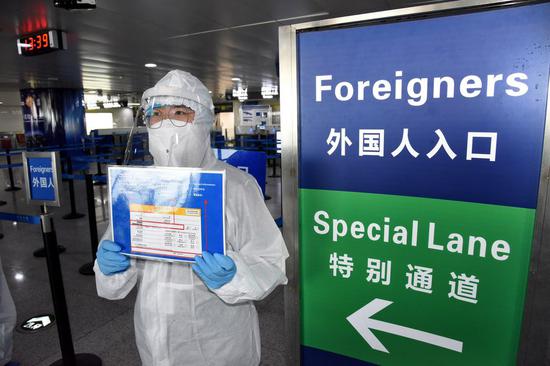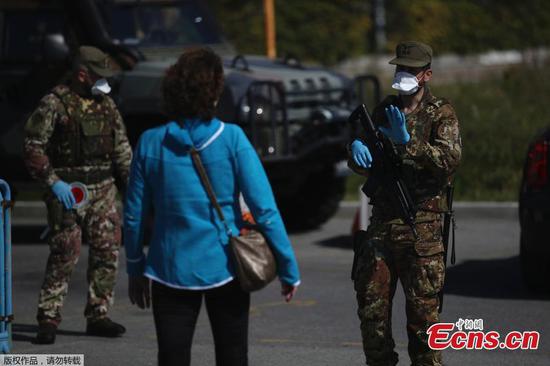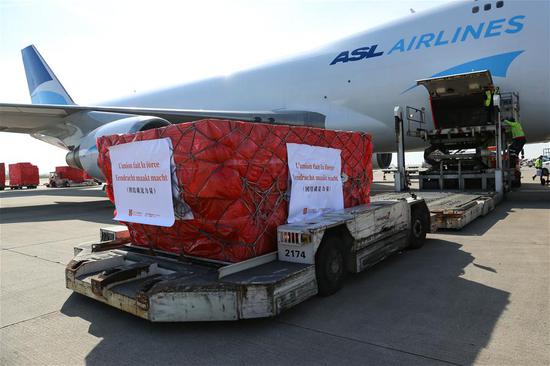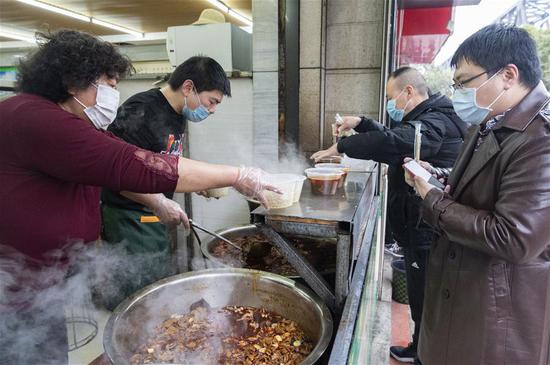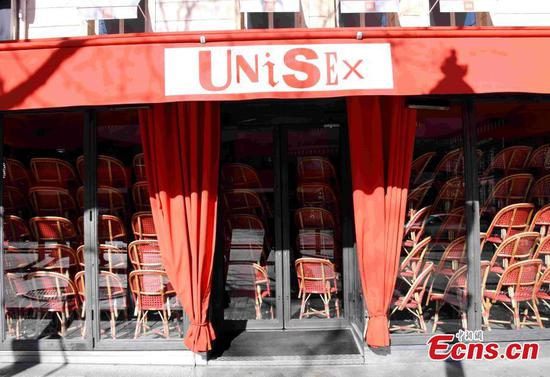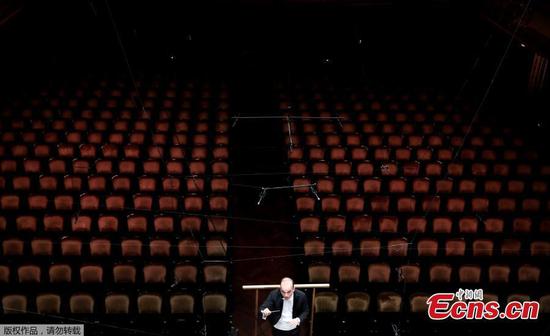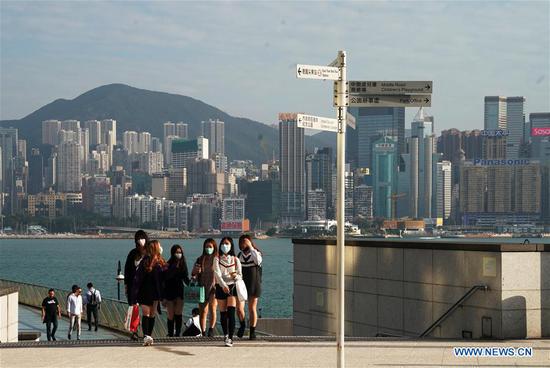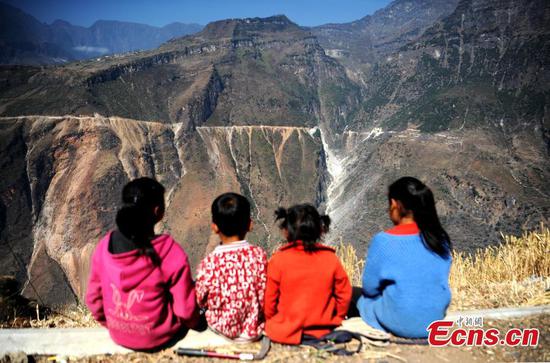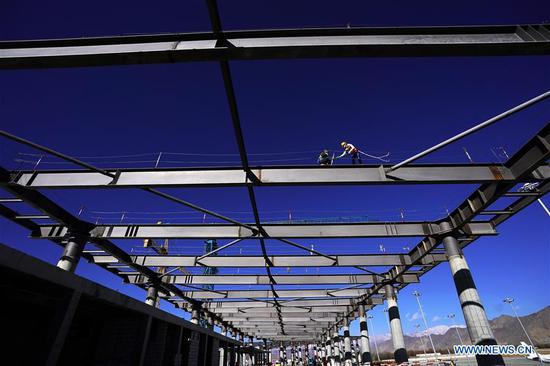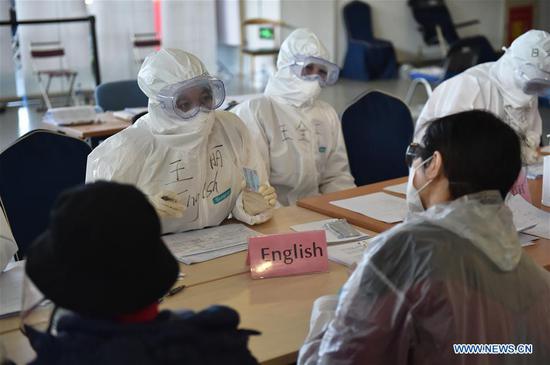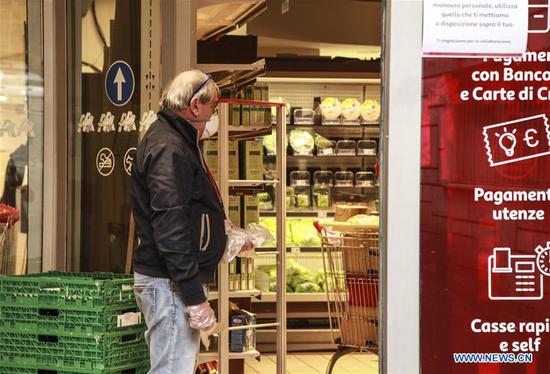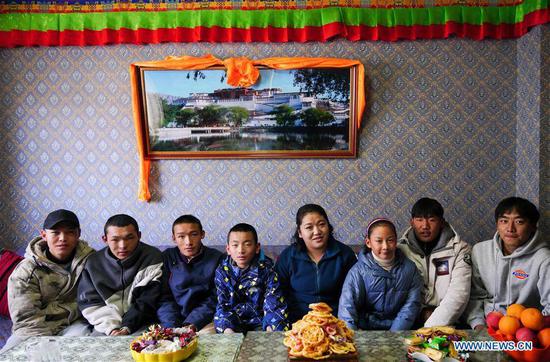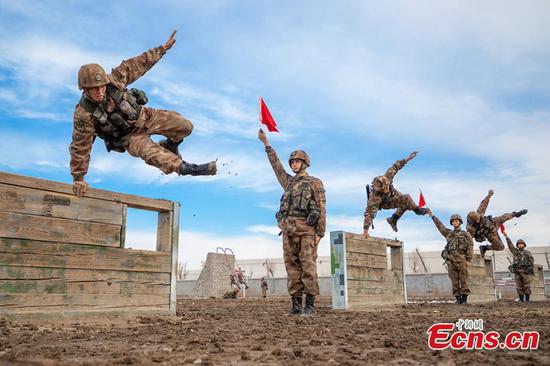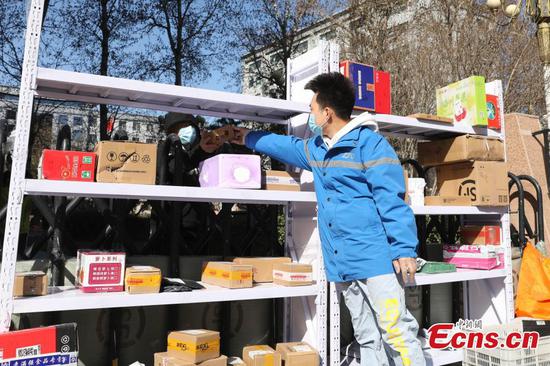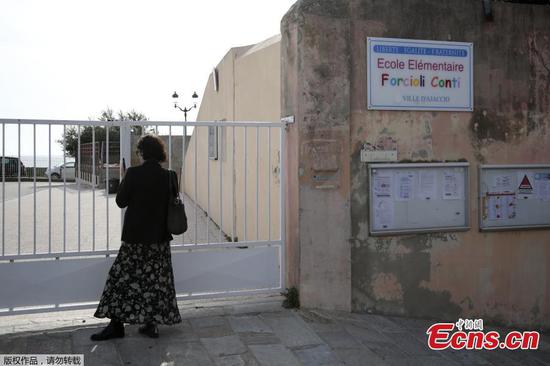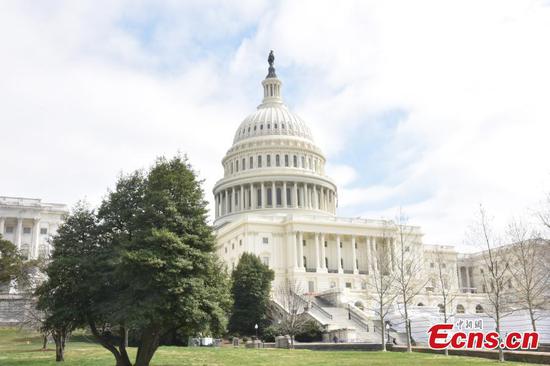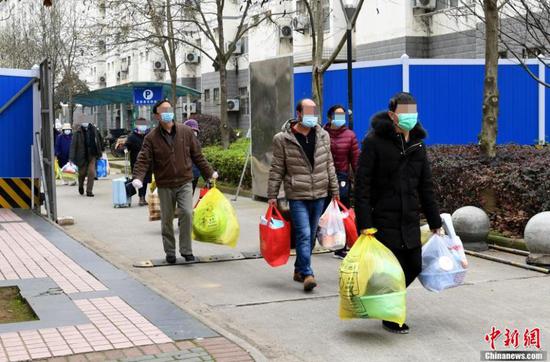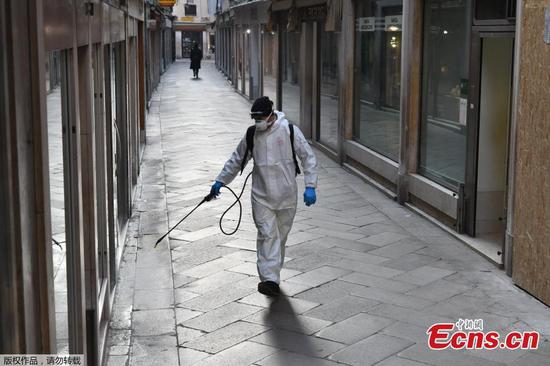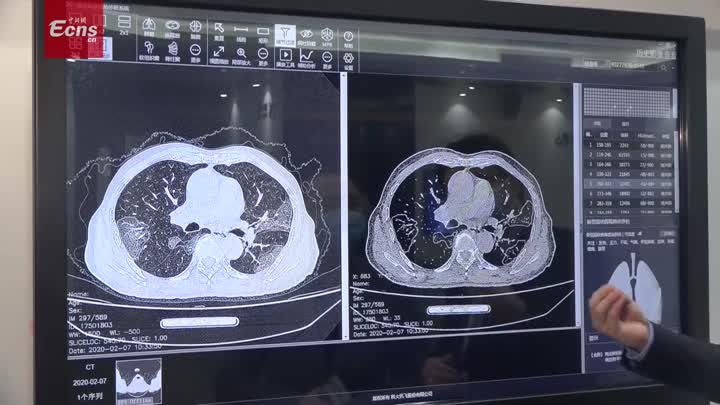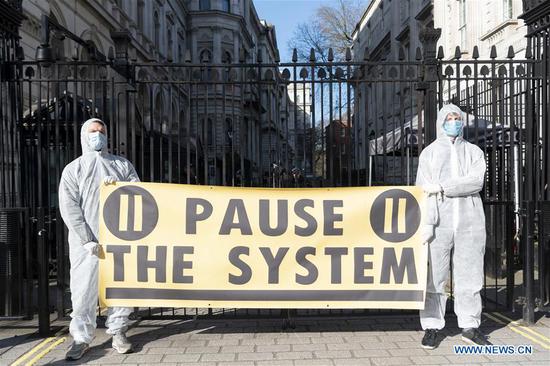
Activists stage a protest outside 10 Downing Street against the British government's handling of the COVID-19 outbreak in London, Britain on March 16, 2020. British scientists have urged the government to take "more restrictive measures" to tackle the novel coronavirus as the number of confirmed COVID-19 cases in Britain reached 1,372 as of Sunday morning, an increase of 232 over the last 24 hours. (Photo by Ray Tang/Xinhua)
British Prime Minister Boris Johnson has called for an end to nonessential contact and travel as the country steps up its battle against the spread of the novel coronavirus, which causes COVID-19, with social distancing at the heart of the policy.
School closures are not yet planned, but where possible, Johnson said people should work from home and avoid pubs, clubs and theaters as the country enters a period of fast growth in infection.
"The advice for non-essential social contact is particularly important for people over 70 years old, pregnant women and for those with some health conditions," he continued, adding that if one person in a household showed any symptoms, everyone in the household should stay at home for 14 days to prevent its spread.
"We are entering a fast growth period," said the government's chief scientific adviser Patrick Vallance, who shared the podium with Johnson, adding that London was "ahead of other parts of country".
"This will go on for some time," said the UK government's Chief Medical Adviser Chris Whitty. "It won't be a couple of weeks. A prolonged period," he said, adding that "the chances of dying are very low".
When asked directly if he was shutting down theaters and similar venues, Johnson said, "What we're doing is giving very strong advice public venues such as theaters should no longer be visited ... we have the powers if necessary (to impose closure) but I don't think it would be necessary to use those powers."
With regard to visiting care homes, he said "you can take it from what we've said about avoiding all unnecessary contact... absolutely we don't want to see people unnecessarily visiting care homes".
Previously, the British government had been criticised for its communications around the crisis. Senior officials will now give daily briefings. Figures released earlier in the day put the latest number of UK novel coronavirus cases at 1,543, an increase of 171 from the total of 24 hours earlier, with 53 deaths.
Earlier, Health Secretary Matt Hancock even tweeted a phone number for companies to call if they could offer help manufacturing extra ventilators for the National Health Service.
Speaking on his first day in the job, the new Governor of the Bank of England Andrew Bailey said the institution is working closely with disease specialists to limit the outbreak's economic impact.
He said there was "no question" the outbreak would have an economic effect which would be dictated by how long it lasted, and "obviously that's not something that as a central bank, we have an expertise in".
He said preventative measures to avoid any sort of hangover were also necessary, which was why his predecessor Mark Carney cut interest rates last week. "That's something that we want to minimise and stop. And that's why you saw prompt action last week," he added.
The virus continues to take its toll across Europe. Spain has now surpassed South Korea to become the fourth most infected country in the world, behind China, Italy and Iran.
From Sunday to Monday Spain's number of cases rose by around 1,000, with a new total of 9,191 cases and 309 fatalities, and in France, the head of the health service, Jerome Salomon, has said the situation is "deteriorating very rapidly".
Speaking before a video conference of the Group of Seven world leaders, Italian Prime Minister Giuseppe Conte warned his country is entering "the riskiest weeks" of the outbreak, but its experience as one of the worst-affected countries could help it play a key role in the international fight against the virus.
"It is time for courageous choices and Italy can offer a significant contribution as the country that was the first in Europe to have experienced such a wide spread of the virus," he said.
In Finland, public gatherings are now limited to 10 people. Schools, universities and municipal cultural institutions have been closed, and restrictions are being placed on access to elderly people because of their increased vulnerability.
In a special news conference Norway's Prime Minister Erna Solberg answered questions from schoolchildren, telling them "it is OK to be scared when so many things happen at the same time." People breaking their curfew without good reason will be fined 20,000 kronor ($1,948) and even the remote North Atlantic island of Greenland has now recorded its first case of novel coronavirus.
Businesses continue to feel the strain. Trading on the Standard and Poor 500 stock market index in the United States was paused for 15 minutes after share prices fell so sharply a cautionary circuit breaker was triggered to prevent further losses.
The airline sector is particularly hard hit, as travel becomes more difficult and less popular. IAG, the company that owns British Airways, plans to reduce capacity by at least 75 percent in April and May, and the company's head, Willie Walsh, who was due to step down at the end of March, is staying on to deal with the crisis.
"We have seen a substantial decline in bookings across our airlines and global network over the past few weeks and we expect demand to remain weak until well into the summer," he said.
In a letter to staff, BA chief Alex Cruz warned: "We can no longer sustain our current level of employment and jobs would be lost-perhaps for a short term, perhaps longer term."
Budget carriers EasyJet and Ryanair are likely to ground most their fleet, with EasyJet chief executive Johan Lundgren saying intervention is needed.
"European aviation faces a precarious future and it is clear that co-ordinated government backing will be required to ensure the industry survives and is able to continue to operate when the crisis is over," he said.









